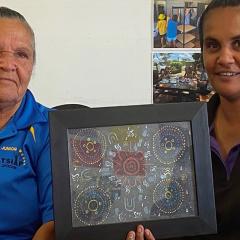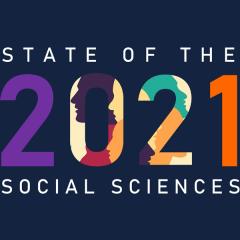This article refers to male and female educators but recognises that the labels of “male” and “female” suggest that gender is binary. ISSR acknowledges the range of gender identities that exist. In this circumstance the researchers acknowledge that the data does not allow for extension beyond a male-female binary due to the lack of gender diversity reporting in the sector. This is noted for future investigation and research.
The first five years of life are the most critical for building the foundations for life-long learning, wellbeing, and health, and high-quality Early Childhood Education and Care (ECEC) led by qualified staff has been identified by the Organisation for Economic Co-operation and Development (OECD) as central to establishing positive child health and education pathways throughout life.
 That said, there remains a critical shortage of qualified staff in ECEC and a strong gender gap, with males only accounting for 2.5 % of the Australian ECEC workforce. Despite the OECD recommending that the recruitment of male educators is one of nine strategies to tackle the workforce crisis, males are less likely to train as an ECEC educator, less likely to remain in training if they do enter, and those who do enter the workforce are more likely to leave than their female counterparts.
That said, there remains a critical shortage of qualified staff in ECEC and a strong gender gap, with males only accounting for 2.5 % of the Australian ECEC workforce. Despite the OECD recommending that the recruitment of male educators is one of nine strategies to tackle the workforce crisis, males are less likely to train as an ECEC educator, less likely to remain in training if they do enter, and those who do enter the workforce are more likely to leave than their female counterparts.
In order to understand the factors that attract males and retain their participation in the ECEC workforce, this research examined the effects of collegial supports and relationship dynamics in the retention and contribution of male educators in childcare settings.
In partnership with Australia’s largest childcare provider, Goodstart Early Learning, 96 female educators and 49 male ECEC educators (past and current) were interviewed using a research design that included data from staff in a centre with no male educators and those with a single male educator. In addition, data from two childcare centres were included because they provided invaluable information in that they both had male directors and a 20-25% male workforce – 10 times the average nationally and internationally.
Key findings included:
- Workplace relationships can be make or break. They serve to include or exclude and affect the day-to-day experiences, sense of wellbeing and belonging of male educators. Negative (or lack of) collegial relationships precipitate male educator exit, whereas positive collegial relationships tend to prolong the retention of male educators.
- There are some subtle underlying beliefs that may undermine acceptance of males in the ECEC workforce. While the inclusion of males in the ECEC workforce is explicitly accepted by female colleagues, actions within the workforce may be influenced by the attitudes of those outside or by latent personal attitudes distanced by positioning as the voice of others.
- Distinct benefits to productivity and relationships were reported that included gender diversity enhancing workplace relationships and work productivity, and that the low participation of males presents opportunity-costs that extend beyond just increasing the workforce pool.
- Increasing gender-minority numbers will not necessarily improve inclusion in the workplace, as broader gender dynamics pervade, and more males may challenge the social order and serve as disruptors.
The men’s accounts foreground the professionalism required to be an ECEC educator and challenge the assertion that work in ECEC is instinctual women’s work. This work has been published in three peer reviewed papers, with a final paper under review:
- Experiences of workplace relationships as factors precipitating or preventing dropout of male educators in ECEC
- Beliefs and attributions: Insider accounts of men’s place in early childhood education and care
- A man in the centre: Inclusion and contribution of male educators in early childhood education and care teaching teams
- Men Times Ten: Does the presence of more men support inclusion in a female dominated occupation? (under review)
This research was led by Ms Victoria Sullivan under the supervision of Professor Karen Thorpe (ISSR), Dr Laetitia Coles (ISSR) and Dr Yuwei Xu (University of Nottingham) and with the industry partner Goodstart Early Learning.



